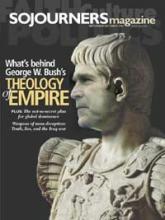Two of my colleagueshighly respected in the nonprofit communityrecently had their homes and offices raided by the FBI. Their names were smeared in the newspaper and false accusations brought against them through the efforts of forces opposing their work. The investigation ended with no charges filed. There had been no wrongdoingthe entire affair was politically motivated.
The big-money politics of neighborhood development have turned Washington, D.C., into a battleground of class warfare. Upper-income forces of gentrification increasingly overpower the voices of low-income residents and nonprofit groups who struggle to maintain diversity and create opportunity for those on the low end of the economic ladder.
Today, virtually none of my organization's new affordable-housing developments goes unchallenged. Recently one of our projects was blocked by the zoning boardwhich had just previously supported an almost-identical project designed for upper-income people.
D.C. Mayor Anthony Williams is aggressively campaigning to attract more than 100,000 new upper-income residents, along with a major league baseball team. He aims to build a new stadium, using $339 million in city funds, despite studies that show there will be little or no benefit to local residents and neighborhood economies. All this at a time when crucial city services are being slashed and the poor displaced.
We are locked in a struggle for the soul of our city. Will ours be a city designed for the affluent? Or will it be an inclusive community, a city that aims to have a place for allwith a special concern for those near the bottom of the economic ladder? Real estate prices have escalated such that lower-income people simply cannot afford to live here without help. Displacement is occurring on a significant scale. Homelessness is increasing.
Read the Full Article
